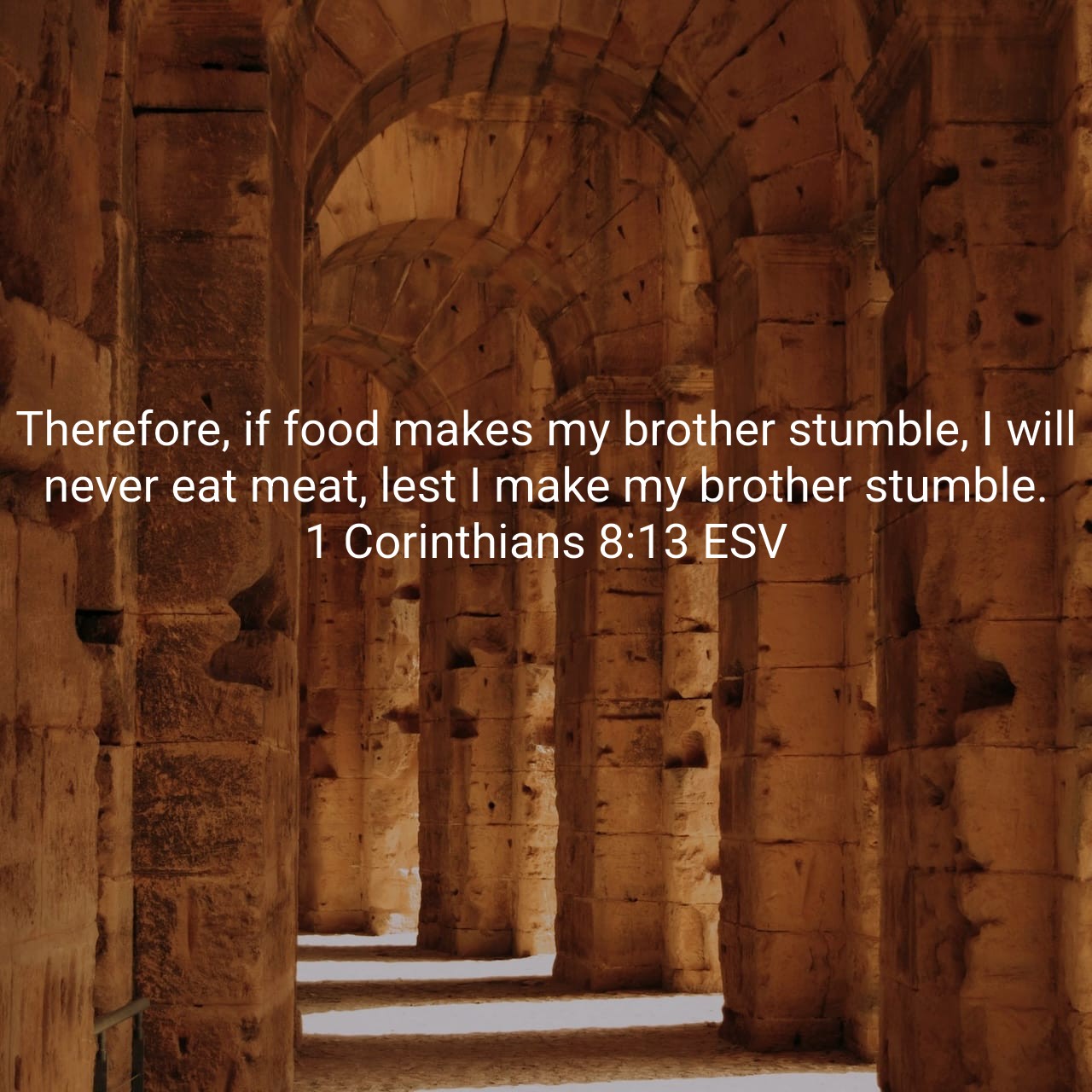Devotional 24 November 2025

Christian freedom was never meant to point us to ourselves. Yet the Corinthians, much like we often do, imagined that spiritual maturity meant having more personal liberty. Paul turns that idea upside down. “Take care that this right of yours does not somehow become a stumbling block to the weak” (v.9). In other words, if your freedom leads you to forget the family God has placed around you, then you have misunderstood freedom entirely.
Scripture consistently reminds us that Christ did not come to save isolated individuals, but a people for His own possession (Matt 1:21; Titus 2:14). This is why Paul anchors his warning in the cross: the one you risk harming is “the brother for whom Christ died” (v.11). Christian liberty is never about asserting what I am allowed to do; it is about remembering the immeasurable worth of the people for whom Jesus gave everything.
Some believers still carry memories and associations from the darkness Christ rescued them from. What looks harmless to us, (clothing, a symbol, a setting, a behavior, certain words) may still echo with old chains to them. If seeing our freedom leads them to act against their conscience, Paul says we have not merely bothered them; we have wounded them. And more than that: “You sin against Christ” (v.12). Romans 14:23 makes the issue plain: whatever does not proceed from faith is sin.
But Paul does more than warn, he points us back to Jesus Himself. The Son of God, the Creator of Life, had every right to remain in glory. Yet He laid aside every divine privilege (Phil 2:6–8). He did not cling to His right to be honored, nor to His right to comfort, nor even to His right to life. The Author of Life allowed His own life to be taken, so that we, who were dead in our sins (Eph 2:1–5), could receive life in Him. This is the shape of love. This is the pattern of freedom.
So Paul concludes, not with rules, but with a heart shaped by Calvary: “If food makes my brother stumble, I will never eat meat” (v.13). Love does not ask, “What am I allowed to do?” but, “How can I help my brother live?”
True Christian freedom is not the ability to do whatever we want. It is the Spirit-enabled ability to lay anything down for the good of those Christ died to save.